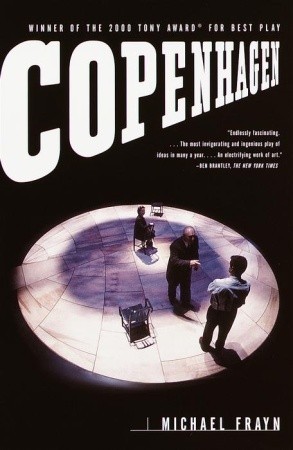TL;DR
Michael Frayn's play Copenhagen explores the complex relationship between physicists Niels Bohr and Werner Heisenberg during a pivotal wartime meeting, delving into themes of morality, truth, and the human condition within the realm of nuclear physics.
What is Copenhagen about
Copenhagen is a thought-provoking play that dramatizes an actual meeting between two influential physicists, Niels Bohr and Werner Heisenberg, in 1941. Set against the backdrop of World War II, the play examines their philosophical and moral dilemmas as they reflect on their past relationships and scientific pursuits. Frayn uses this historical encounter to explore the concept of uncertainty—not just in physics, but in human motivations and morality. The characters, including Margrethe Bohr, play pivotal roles in analyzing the implications of Heisenberg's work on nuclear weapons, particularly given his association with the Nazi regime. Through a series of layered narratives, Frayn invites the audience to consider how personal biases shape our understanding of truth and history.
Copenhagen 8 Key Takeaways
The 1941 Meeting of Bohr and Heisenberg
The play revolves around a real historical meeting between Niels Bohr and Werner Heisenberg in Copenhagen during World War II, where they reflect on their past and discuss the implications of nuclear science.
Different Perspectives
Frayn employs a non-linear narrative to present multiple perspectives on the conversation, showcasing how individual biases influence the interpretation of truth.
Philosophical Underpinnings
The play delves into philosophical questions about morality, responsibility, and the ethical implications of scientific discovery, particularly in the context of war.
Margrethe's Role
Margrethe Bohr, Niels' wife, serves as a moral compass and commentator, questioning Heisenberg's motives and the trust between the two men.
Heisenberg's Dilemma
Heisenberg's internal conflict about his role in nuclear science and the Nazi regime forms a central tension of the play, as audiences ponder his intentions.
Schrödinger's Cat
Frayn incorporates principles from quantum physics, like Schrödinger's cat, to illustrate themes of uncertainty and the complexity of human interactions.
Historical Context
Set during a time of global conflict, the play highlights the intersection of science and politics, raising questions about the responsibilities of scientists.
Open-ended Questions
Copenhagen concludes without definitive answers regarding the characters' motivations, emphasizing the ambiguity inherent in human relationships and historical events.
Top Copenhagen Quotes
- "We are all, in a sense, the products of our past, yet we also stand before our future, uncertain of our choices."
- "Science offers no certainties, only questions; the answers lie within us, flawed and human."
- "The search for truth is a labyrinth where even the most brilliant minds may lose their way."
Who should read Copenhagen?
Copenhagen appeals to readers and theatergoers interested in the intersection of science and philosophy, particularly those who appreciate intellectual drama that provokes deep reflection on morality, history, and human relationships. It is especially relevant for those fascinated by the ethical implications of scientific discovery in the context of global conflict.
Copenhagen Best Reviews
- "A riveting exploration of moral ambiguity in science; Frayn's work resonates deeply on both intellectual and emotional levels." - The New York Times
- "Copenhagen is a profound meditation on the nature of knowledge and the human condition, brilliantly articulated through Frayn's incisive dialogue." - The Guardian
- "An extraordinary play that combines science, philosophy, and history into a compelling narrative that lingers long after the curtain falls." - The Telegraph
People also liked these summaries
Copenhagen FAQs
Is Copenhagen based on a true story?
Yes, the play is based on a real historical meeting between physicists Niels Bohr and Werner Heisenberg in 1941, though it presents a fictionalized account of their conversation.
What themes are explored in Copenhagen?
Copenhagen explores themes of moral ambiguity, the nature of truth, the ethical responsibilities of scientists, and the complexities of human relationships within the context of nuclear physics.
